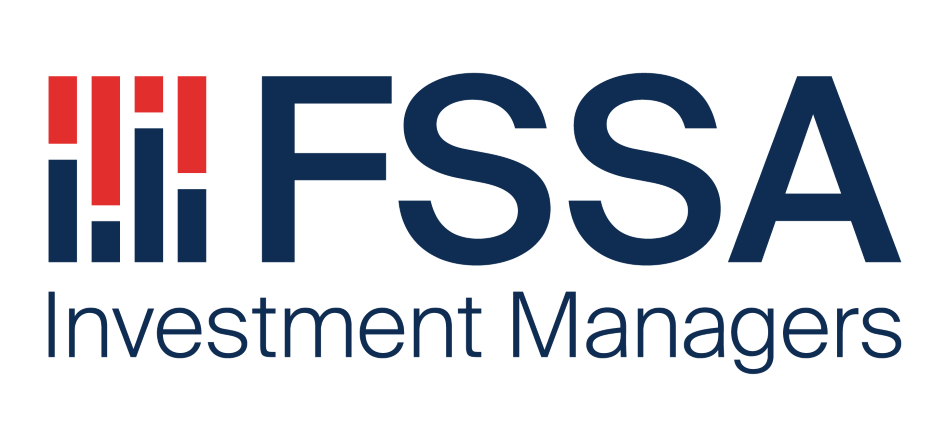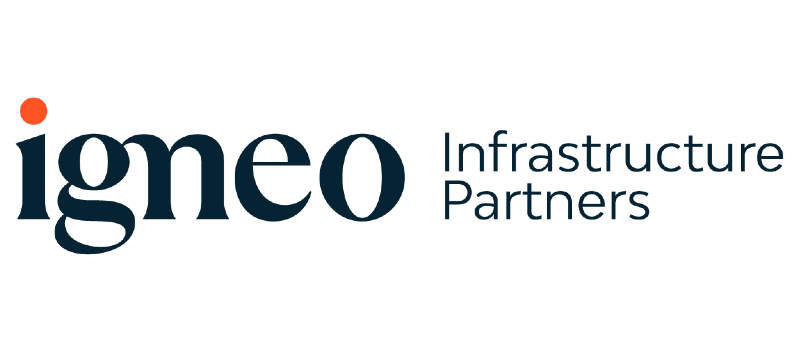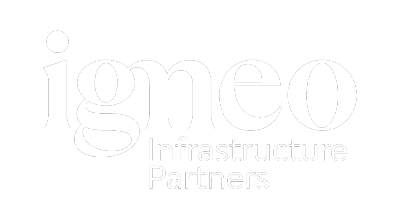First State Stewart Asia believe the best companies can typically be found among the leading consumer, financial or industrial companies in the less developed parts of the world. Here the team reflect on some investments made in emerging markets, including India, Brazil, South Africa, Russia, China and Mexico.
As a team, we have been investing in Emerging Market (EM) companies for more than three decades, following the same investment philosophy and process from the outset. Our goal is to generate attractive, absolute returns for our investors over the long term. We seek to do this by investing in quality companies which are stewarded by great management teams and able to compound cash flows steadily at high rates.
Our investment philosophy is inherently conservative and fosters healthy scepticism and challenging of the status quo. Rather than focusing on what needs to go right for an investment to be successful, we spend much of our time identifying what might go wrong – and how to mitigate those risks.
As such, we do not think about risk relative to an index. Rather, we view risk as the permanent loss of capital, which usually occurs when a management team defrauds investors or makes value-destroying capital allocation decisions; or when a franchise deteriorates because its competitive advantages have been eroded; or if we significantly overpay for what is otherwise a good business. Consequently, being disciplined about assessing a company’s stewardship, its franchise and its valuation is not only common sense, but is, in our view, an essential part of risk management.
This approach can help preserve capital during poorly-performing markets, while growing clients’ assets over longer time periods.
Some changes are more important than others
When evaluating a company’s investment case, we pay particular attention to changes in the senior management team or company ownership. In our experience, such changes can potentially have a significant impact on long-term returns and tend to be underestimated by market participants. Take, for instance, our Indian private sector bank holding, Axis Bank, which has experienced substantial changes in its senior management team in recent years. While Axis Bank has performed better operationally than most of its public sector peers, it has historically lagged other private sector banks, partly because of strategic missteps in its corporate banking division.
Still, Axis Bank has one of the strongest deposit franchises in India (#3 among private banks, only slightly behind HDFC Bank and ICICI Bank in terms of market share), which has helped keep its cost of funding on a par with the best private banks. We have known and monitored Axis Bank for many years; and appraised it in more detail when non-performing infrastructure loans caused stress on its books. For most banks, a sustainably low cost of funding is comparable to cost leadership for an industrial company operating in a commoditised industry – in other words a huge competitive advantage. If a new management team could drive changes in the way the bank approached risk in its corporate division, the true strength of its retail franchise would shine through – and Axis Bank could transform into one of the top three banks in India. Whilst there were concerns about the management, the valuation had discounted much of the risk and there was a margin of safety given its strong franchise. As such, we bought a small position for our portfolios and started to engage with the management team and with representatives of Bain Capital (who had invested about USD1bn in the bank, effectively becoming their largest private shareholder) on the changes we hoped to see. It soon became clear that Bain, via its board seat, was equally keen on seeing change. Though Axis Bank was already in the process of re-evaluating its operating model at this point, the pace of change quickened in April 2018, when the then CEO Shikha Sharma announced that she would resign by the end of the year.
Soon after, Amitabh Chaudhry, whom we knew well as the CEO of HDFC Life Insurance, was announced as the new CEO of Axis Bank. This was a very positive development and significantly strengthened our conviction that Axis would improve its corporate culture and emerge as a stronger bank. We have since met Mr Chaudhry post his appointment and have been impressed by his strategy for the bank’s turnaround. While acknowledging the strength of the core deposit and retail franchise, among other things, his key focus is to address the historical lack of risk awareness in the corporate division. The opportunity here remains significant, with 70% of the market being dominated by inefficient and undercapitalised state-owned enterprise (SOE) banks which lack the systems and incentives to properly compete. To help execute his plan, Mr Chaudhry is assembling a strong team around him, with experienced bankers from the leading banking institutions in India. Return on equity (ROE) is targeted to rise to a healthy 18% over the medium term, driven by a focus on growth, profitability and sustainability. As a result of all these changes, the stock price has risen; though there is still significant growth potential in the underlying business for decent long-term returns. If Axis Bank shows how a change in management strengthened our conviction, the opposite was true for Russian retailer X5 – one of the more interesting journeys we have had and, sadly, less profitable.
The theme is similar – a change in ownership – but at X5’s main competitor and under dubious circumstances. This subsequently led to X5’s key managers departing to join the rival group, forcing us to reconsider our initial investment case. As an investor focused on quality companies with strong business models, robust balance sheets and proven management teams, it is difficult to find companies in Russia that meet our criteria. Challenges with the ever-intervening state, opaque company structures, stretched balance sheets and a lack of transparency on managerial decisions are often factors keeping us on the sidelines. In X5, however, we believed we had found an exception to the rule; and, for a while at least, it seemed that this was indeed the case. X5 is Russia’s leading supermarket chain, with an 8% market share in the highly fragmented, under-penetrated food retailing market. The company operates three formats, of which the soft discount format, Pyaterochka, accounts for close to 80% of the business. The management team is properly incentivised to perform and investors are aligned with the controlling shareholder, Alfa Group, who has tended to protect minority shareholders in the past. But perhaps equally importantly, the food retailing industry is one of few in Russia that has managed to avoid state interference to a great extent. It has been dominated by private players which have, for the most part, acted fairly rationally, as evidenced by the high level of profitability among the leading players in the industry. However, the investment case for X5 started to deteriorate in early 2018, when Magnit, X5’s biggest competitor, was taken over by a private equity firm associated with the Russian state-owned bank, VTB, at what seemed to be an unusually low price. It soon emerged that the son-in-law of the Russian foreign minister was behind the acquisition, having apparently set his sights on the domestic supermarket industry.
Shortly after the Magnit transaction was announced, several senior members of X5’s management group resigned and joined the rival firm. Particularly worrying was the departure of Olga Naumova, the CEO of Pyaterochka, who is widely regarded as one of the best operational managers in the industry. These changes, set against a backdrop of rising uncertainty and potential US sanctions against Russia, prompted us to sell out completely of X5. Regrettably, we booked a capital loss, but as Warren Buffett would say:
“Should you find yourself in a chronically leaking boat, energy devoted to changing vessels is likely to be more productive than energy devoted to patching leaks,"
Warren Buffet
Similar to Russia, one of the biggest challenges we face when evaluating investments in China is that a large segment of almost every industry is dominated by SOEs, with interests often mis-aligned to our own. As such, we have been watching with interest as the country tests what it calls “mixed-ownership reform”, where strategic investors buy stakes in SOEs. This is usually accompanied by new board appointments, nominated by the new investors, and management stock options based on key performance targets to align their interests with the company’s. As a result, overall corporate governance standards and alignment of interests should improve. The government has rolled out two batches of mixed ownership reforms since the second half of 2016, featuring leading SOEs in a variety of industries. One of them is Tsingtao Brewery. Tsingtao is China’s most famous beer brand. The company has an 18% market share by volume, making it the country’s second largest brewery. Historically, they have associated with global breweries – first with Anheuser Busch InBev (ABI), who owned 27% by 2009, but then sold to pare back their own excessive leverage, followed by Asahi of Japan. However, there was little synergy (and a perceived lack of mutual trust) between the two companies; and it come as no surprise when Asahi decided to sell its stake in Tsingtao in late 2017. Meanwhile, Tsingtao was chosen to implement mixed-ownership reforms. Tsingtao has a history of being the poster child of SOE reform in China – it was the first Chinese SOE to be listed on the Hong Kong Stock Exchange in June 1993 and then on the Shanghai Stock Exchange the following month. We have been shareholders of the company in our China portfolios for many years; it is one of the largest positions in the A-Share fund. The news that the company would embark on another phase of reform was an exciting prospect. In the past, Tsingtao’s lack of dynamism meant that it was slow to build on its brand image and respond to the threats posed by ABI (leader in the premium beer segment) and China Resources Beer (which dominates the mass segment). When Fosun International, a private conglomerate with interests in pharmaceuticals to fashion, announced that it would buy Asahi’s stake in Tsingtao and partner with the company in its reform journey, we questioned how they might fix this issue. Our recent meeting with Fosun suggested that they are pushing for significant changes in the senior management team at Tsingtao in favour of younger talent; and are committed to implementing share-based management incentive schemes by the middle of 2020. With valuations at multi-year lows and a net cash balance sheet (30% of the market cap), it seemed as if it would not take much for Tsingtao to beat market expectations, which offered investors a margin of safety. Thus, our familiarity with the company (via our China portfolios), along with the impending reforms and attractive valuations, compelled us to buy a position for the GEM portfolio. We plan to engage with Fosun and Tsingtao over the coming years, with the intention of further aligning our interests.
Other changes we consider
In summary, changes in ownership or management, either positive or negative, will always be important to our investment process and are tracked closely by the team. However, there are many other considerations which form part of our investment decision-making. Sometimes external events (noise) drive dislocations in the market’s perception of a business franchise, providing opportunities to build a position on more attractive valuations. After all, in most cases, intrinsic value moves only gradually and over time; and often has little approximation with daily, monthly or even yearly price movements.
Mexican airport operator, Grupo Asur, which we acquired for the GEM portfolio towards the end of last year, is one such example. As a team, we have known the company for many years and believe that its long-time CEO, Adolfo Castro, is arguably one of the best airport operators in Emerging Markets, having generated a total shareholder return of around 18% per annum in US dollars since the company went public in September 2000. Asur, which has operations in Mexico, Colombia and Puerto Rico, is a leading operator in an attractive industry. Airports tend to be natural monopolies and, while that entails a degree of regulatory risk, the non-regulated segments (shopping and dining) tend to provide a steadily-growing stream of profits. Modern airports are essentially shopping malls with a landing strip, with the added feature that its customers are forced to stay for hours. Airport travellers tend to be relatively wealthy and most are in ‘vacation mode’, making for an attractive customer segment. The primary metric for airport operators is to maximise the number of passengers that travel through the airport and the revenue per passenger. Few have done this better than Asur, where non-regulated earnings have increased from 10% to almost 70% of earnings since 2000, resulting in earnings per share (EPS) growth of 18% per annum. As a private operator, Asur has legally-binding concessions that run until 2048. In addition, Asur has attractive long-term prospects: its largest airport, Cancun, serves 23 million passengers annually, but has the capacity for 40 million, and there are secular tailwinds in place, given the low penetration level (air travel has only 2% market share of travel in Mexico). In the past, our problem with Grupo Asur had been its valuation, which reflected the attractive economics of the business and the quality of the management team. Indeed, our detailed research report on the company had concluded as much. However, at the end of last year, the share price dropped by almost 40% in USD, providing an attractive opportunity to buy. The decline was driven partly by politics, as Mexico’s leftwing candidate Andrés Manuel López Obrador (also known as AMLO) won the election in mid-2018, causing stock markets and the currency to be sold off. Making matters worse, last October AMLO made good on his promise to cancel an expansion of Mexico City Airport, which spooked investors and raised questions about the regulatory framework for airports.
Furthermore, Asur faced problems in Colombia and Puerto Rico, where operations had been impacted by a pilots’ strike and Hurricane Maria respectively. Given our knowledge of Asur’s business, a conversation with the CEO gave us confidence that the fall in share price was mostly due to short-term noise and not because of a structural change in the franchise. Indeed, shortly after our discussion, Asur signed a legally-binding five-year renewal agreement with the government in December 2018, laying to rest our fears of increased government intervention. We bought a position in Asur and followed up with a visit to Mexico (landing at their main airport in Cancun!), where we again met with Adolfo Castro. Overall, we are comfortable backing him and Asur to steadily-compound cash flows for the foreseeable future. Another example is AVI, one of the top ten positions in the strategy and whose investment case we described in our previous letter. We met with the plainspoken CEO, Simon Crutchley in the fourth quarter of 2018. He didn’t disappoint, remarking:
“Running the business for anyone but shareholders is a ludicrous concept! We don’t have company songs or uniforms. The only thing that matters is to deliver the best risk-adjusted returns for our shareholders,"
Simon Crutchley
The current operating environment in South Africa is extremely tough, as the country struggles with record high unemployment levels (~30%), whilst battling twin deficits, corruption and consecutive droughts. But, when AVI recently issued a profit warning and the share price fell by 15%, we saw it as an opportunity to add to our position. Despite the country’s difficulties, nothing has changed with regards to the attractiveness of AVI’s franchise – it still generates a healthy 30% return on capital employed (ROCE) and its managers are as effective as ever. In a way, these challenging times are actually beneficial for AVI, as opportunities arise to make value-accretive acquisitions – which will then pay off handsomely when the external environment improves. We remain confident that AVI can create substantial shareholder value over the coming years.
Sometimes, however, the market values a firm substantially higher than the fundamentals warrant. We had one such experience with Natura & Co in Brazil. Natura is Brazil’s leading cosmetics business, founded in 1969 by three partners who still own a 60% stake. It has been ahead of the curve in terms of ESG thinking, incorporating aspects of sustainability into its core business model right from the start. Its products are ethically sourced in a manner that benefits local communities and doesn’t degrade the environment. With an emphasis on building brands in a sustainable fashion, a highly cash-generative franchise, and founders with a long-term mindset, Natura displayed many of the characteristics that we like to see in the companies we own. At the end of 2017, when it was trading at an attractive valuation due to strategic missteps in previous years (1.2x Price/Sales, implying a normalised free cash flow yield of around 5% on record low margins), we built a position.
This was an attractive discount, in our view. For a time, Natura was the leading cosmetics brand in Brazil, commanding a double-digit market share in the world’s fourth-largest cosmetic market. However, Natura’s management became complacent, which allowed the competition to gain market share using a multichannel approach (direct selling in addition to traditional retail outlets). As a result, productivity of Natura’s direct sales channel fell and margins tumbled with it. Net margins, which stood at 15% in 2011 fell to a low of around 4% in 2016. Similarly, over the same period, its market share dropped from 15% to 11%. Having met the company multiple times during this period, we noted that the founders, who had previously stepped back to allow professionals to run the business, had returned and were now running the day-to-day operations. More management changes followed, which demonstrated an intent to turn around the business. Since then, Natura has regained market share in Brazil; margins – and thus profitability – began to turn around. However, Natura had also become acquisitive, which we are naturally sceptical about. In the case of Australian cosmetics firm Aesop, the acquisition turned out well, with revenue growing multifold over the last six years and the brand becoming internationally recognised. As such, we reserved judgement when, in the second half of 2017, they announced their intention to buy The Body Shop, a struggling business from L’Oréal, for USD1bn. Whilst the jury is still out on The Body Shop acquisition (consolidated net margins are still at only 4.6% and there remains significant work to be done), external factors have resulted in a re-rating of the share price (up nearly 100% since our purchase).
At a country level, Brazil is now ‘back in favour’ with investors, having completed an election and announced long-standing reforms. More recently, and more worrying for us, Natura announced that it was in acquisition talks with Avon, an American direct-selling cosmetics giant (1.5x the size of Natura) that has been struggling for a number of years. Such a large and complicated deal, particularly when The Body Shop acquisition is yet to be digested, came as a surprise. As the valuation is no longer attractive and debt is likely to go up substantially (if the Avon deal should go through), we completely sold our position and will, for now, watch from the sidelines.
What to expect (or not)
Since our last letter, the team has met with more than 200 companies in emerging markets outside Asia, and conducted more than 1,500 meetings within Asia. Our views are mostly based on bottom-up observations, shaped by these meetings; and so we refrain from making short-term, top-down predictions about the markets, or acting on such perceptions. In the short term, markets are often driven by noise rather than fundamentals and we do not claim to have a good handle on the former (for, despite the claims, who does, really?). Investing, to us, is a non-speculative activity that aims to participate in the long-term value creation that the best companies can generate. As we have mentioned before, the best companies – in our opinion – can typically be found among the leading consumer, financial or industrial companies in the less developed parts of the world. Penetration rates for many goods and services are still low, providing a favourable demand backdrop; and high levels of informality raises the barriers to entry substantially. This typically benefits companies which have a brand, distribution or scale advantage, allowing them to generate high margins and thus strong free cash flow. This, in turn, should lead to attractive returns for the owners of these businesses. Conversely, as long term investors we have little appetite to invest in traditional cyclicals– be it commodity, energy or even many of the hardware technology companies.
Cash flows from companies operating in these sectors are usually highly unpredictable, given their close relationship with only a few key variables, and the direction can be very difficult to predict – even in the short term. This makes it almost impossible to assess the intrinsic value of these types of companies; and, as such, be able to determine a fair price to pay. That is however, not an endorsement of very detailed forecasts and complicated valuation models. In the words of John Kenneth Galbraith:
“There are two kinds of forecasters: those who don't know, and those who don't know what they don't know,"
John Kenneth Galbraith
In our experience, the simplest investment cases are usually the best ones – as the long-term track record of our holdings would demonstrate. Our current portfolio, if it had been held for the past 15 years (rebalanced with constant weights and adjusting for companies that had listed more recently), would have compounded at an 18% annual growth rate in US dollar terms over the period – a time which has included major financial crises, wars and political upheavals. The business fundamentals of these companies, stewarded with great care by their respective owners and managers, have been key to this performance. Not only have these companies preserved capital during challenging markets, but they have also been great compounders of shareholders’ capital. While past performance is certainly no guarantee for the future, we remain as confident as ever in our portfolio holdings’ ability to deliver solid long-term results.
Get the right experience for you
Your location :  Australia
Australia
Australia & NZ
-
 Australia
Australia -
 New Zealand
New Zealand
Asia
-
 Hong Kong (English)
Hong Kong (English) -
 Hong Kong (Chinese)
Hong Kong (Chinese) -
 Singapore
Singapore -
 Japan
Japan



























 United Kingdom
United Kingdom 